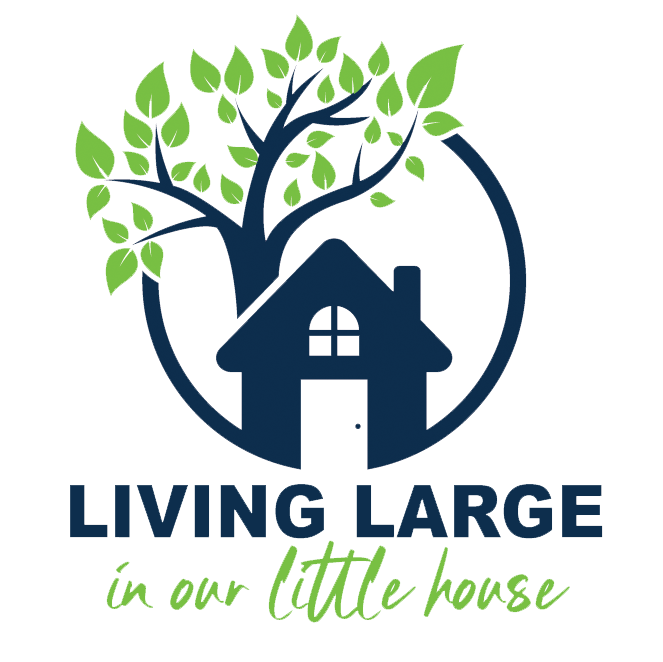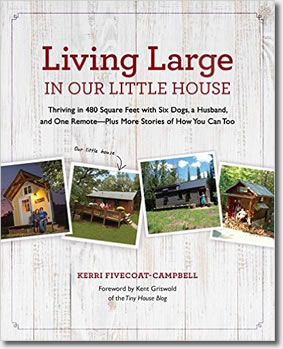The Woodsy Writer’s Life
I read a lot of true crime and watch some of those true crime shows such as “Disappeared” on the network ID.
The other night, I watched a show about a woman who disappeared from New Orleans in December 2001, but her family didn’t realize she was missing until after her body was discovered after Hurricane Katrina in the fall of 2005.
How could this be, you might ask.
According to the program, her family, which included her sister and father, thought she had made good on a dream, having “gone to Europe to write her memoir” all that time.
The show, while terribly sad – also illustrates something that sometimes annoys us writers – the misconceptions of how difficult it is to actually get to the point of making a living from writing and the misunderstanding of what the writing life is really like for 99 percent of us that aren’t best-selling authors.
The fact that a poor woman could go missing for almost four years with her family believing that she had just picked up and moved to Europe to write her memoir with no experience and very little money is symptomatic of what some people envision is the writer’s life. Where did they think she was living? How was she supporting herself, given she hadn’t actually sold that memoir and had no prior writing experience?
A writer’s surroundings may provide us with our muse, but it will not provide us with the means to be there or the experience or talent if we didn’t have it before.
For most professional scribes, writing is something we have been doing most of our lives. When I reconnected on Facebook with an old school chum from my neighborhood, she reminded me that I often wrote stories when we were very young and I would read them to the neighborhood kids.
She remembered one particular novel I penned I titled “Driftwood,” about how our lives are really just like pieces of driftwood moving along the waters of time (I know, probably the reason I evolved into non-fiction…)
I sometimes wrote from home, but only when the weather was bad. If it was a nice day, I liked to go up to the woods behind the high school and write by the creek, but my favorite place was atop the neighbor’s woodpile. Their backyard was quiet, closer to home than the high school and really gave me that woodsy feel.
So when I became a professional writer, my dream was always to move to a cabin in the woods and write like Mark Twain, only with more modern amenities, such as running water and Internet.
Of course, it took us years to achieve our dream. Years of working for publications large and small and building a writing business that would allow me to work from a little cabin in the “Middle of Nowhere” and years of saving to that goal.
And once we got here and brought our “real lives” into the woods, it isn’t anything like many of you might imagine a writer’s life to be. Although my dream studio is beautiful and our surroundings a natural paradise, I do not get to sit and contemplate the air, woods, birds or nature much more than most people who are commuting to a job.
My husband’s job gets us both out of bed very early and then it’s a race to feed and walk dogs, cook, clean, pay bills and do all of that other “real life” stuff everyone else does. On top of it, I have deadlines to meet for the paying writing work that keeps our lives humming. The contemplation and creative writing I want to do usually happens in the wee hours of the morning or late at night, before real life starts or after it’s taken care of, just like it did when I lived in the city.
Maybe the romantic notion that their loved one had attained her dream was better than accepting what must have been a seed in that family’s minds, that something was not right (although they were receiving emails supposedly from her, no one, including her children or ex-husband, had actually spoken with her. The boyfriend was eventually convicted of her murder after her body surfaced stuffed in a trunk after the Hurricane Katrina floods).
But the absence of that romantic notion about what we writers do may have brought them to the truth a lot sooner and taken a dangerous predator off of the streets quicker.
Some of my professional writer friends actually do go to the woods to write, or hole up temporarily in a hotel room in an exotic city or sometimes their own, just to escape their real lives and finish an important project. But very few of us have the means to do it permanently or even for four years.
Do you have a vision of what writers or artists are and do? Would you believe it if a family member disappeared for years, thinking they were off someplace writing, painting or sculpting?









I’m with Brette, it’s too exhausting to try to explain what writers do everyday to those who think it’s a glamorous profession with nothing but benefits.
Lots of benefits, there are, but it’s also a lot of hard work. I agree.
Any family member that went missing for even 24 hours would be cause for concern here! And I know exactly what you mean about the romantic notions of a writer’s life. If only people could see how stressful and unpredictable this business is. On the other hand, I was one of those writers who used to go out in the woods and write, too, so I know of which you speak. Or write, in this case. 🙂
Yeah, but you didn’t stay there for four years working on a memoir with no income or experience. 😉
So many people think that all you have to do to write is sit down and type. So far from the truth; it’s like saying all you have to do to play the piano is sit down and hit some keys. Creativity – no matter in what form – is a combination of skill, tenacity, love and hard, hard work.
Oh, that’s a good analogy, Sheryl. I think people understand the time commitment it takes to play the piano well better than they do writing.
Interesting discussion. This reminds me in a weird way of the new Whedon movie Cabin in the Woods, which is I guess a satire of horror movies. But there does seem to be that romantic notion of ‘writing in the woods’ mixed with a more sinister notion of the woods–what was the Johnny Depp movie, then of course the Stephen King novel/movie.
I never really thought of the romantic notion mixed with the sinister idea of being in the woods. Hmm….
I confess I do not like talking about my work at all. No one understands it and I don’t like trying to explain it. There seem to be two approaches: what I do is ridiculously easy OR what I do is so unimaginably hard that the person wants to understand exactly how I can do something so impossible. Both approaches exhaust me.
That’s so true, Brette. Dale tells me that all of the time, about him trying to explain what I do. I tell him I cannot even explain it to people half the time so they will understand it.
I think this is true of all arts professions. People think that it’s their dream to be a singer until they go on American Idol and are ridiculed by the judges. It’s the same with writing. Most arts are as much skill as they are talent. You have to do it over and over again before you get good at it–studying and finetuning that skill for most of your life. Having a “dream” that just stays in your head never gets you closer to it.
Good point, Alisa.
The artists I know only design/paint/etc in their spare time; I’ve never met one that was fully able to make a go of it, it’s just a side project or side business.
My youngest brother (15 years my junior) is going to try to make a go of an art career, however he’s just 16 and hasn’t really gotten a taste of the working world yet. I am sure he’ll excel at drawing and painting, however I’m not sure what’s waiting for him on the other side of art school.
I wish him luck, Mat. He can make it if he has the drive.
Mat, if your brother really wants to be an artist encourage him to read art publications-there are now excellent magazines, take art classes at a nearby art academy or atelier, and build a portfolio. He can become facebook friends with artists he reads about, view their new work and see just what it takes to be successful as a visual artist. Tell him to read Stapleton Kearn’s blog for a good overview-from there he’ll be able to find others to expand his knowledge. Tell him if he’s serious it will be difficult – but worth it.
Great suggestions, Elaine! When I wanted to write professionally, I not only took classes and workshops, but I attended every writer’s conference and event I could find. It definitely opened doors.
Workshops are also a great idea and although most require you to be 18 there might be some local workshops that will accept him. Also-finding a mentor, someone who is making a living as an artist is invaluable. There are so many resources now that weren’t available even ten years ago, thanks to the internet,that you might as well take advantage of them.
The answer to the second question is “No way!” But sometimes people fabricate stories or accept fantasies to comfort themselves.
As a writer myself, with a lot of artist friends, I know there is nothing romantic about it . . . it’s just a lot of hard of hard, underpaid work. We do it because that is what we do, sometimes having to undertake other work in order to write or paint/sculpt, whatever. The characters in stories may live wildly romantic lives, but but so much the one writing the story!
Yes, Olivia. You’re absolutely right. I’ve never seen a movie or read a book with the writer as the central character that depicts how it truly is. We’re either represented in stories as these people living next to homeless in apartments the size of shoeboxes and crawling with rats, or wildly rich. I guess the truth isn’t so depressing or romantic, either one.
My sister disappeared, sold her home and left without a word. Internet searches netted nothing. I haven’t seen her for 18 years. Then, this January, she wrote to my ex husband looking for me! (Good thing we’re still friends) We made contact and she’s coming to visit this June. Did I worry, yes. But sometimes if you don’t want to be found, you just aren’t found.
I guess its true that some people can change their names or even use different social security numbers. I’m so happy that you found your sister, Carol and that you will be reuniting. You may or may not know that my own brother went missing in 1999. It wasn’t until I did a search for him, using his SSN in January 2001, that we found he had died, been buried in a military cemetery and our mother was never notified. What I was trying to point out here is that this family fervently believed their loved one had just picked up and ran off to Europe and was living happily penning away a memoir. While it’s a nice dream, for most, especially for people with little means and no experience in the industry, it’s one that typically cannot be attained without a lot of prior work in the field. It would be like a doctor, graduating from med school and achieving a prestigious chief of staff position at the highest ranking hospital in the country.
That story is incredible. Reminds me of a family story about a relative who went to Hollywood in the 1920s, not a writer but a would-be actress. She was beautiful, but that is not enough for success. It takes luck, talent, and knowing the right people, etc. The poor woman disappeared. She never came back. No one knows what happened to her.
Wow, Alexandra, that would be a family mystery I would be digging into. I can see it happening in that era, without all of these numbers attached to us and without the Internet, which can turn up just about anything on us with a few clicks of a mouse.